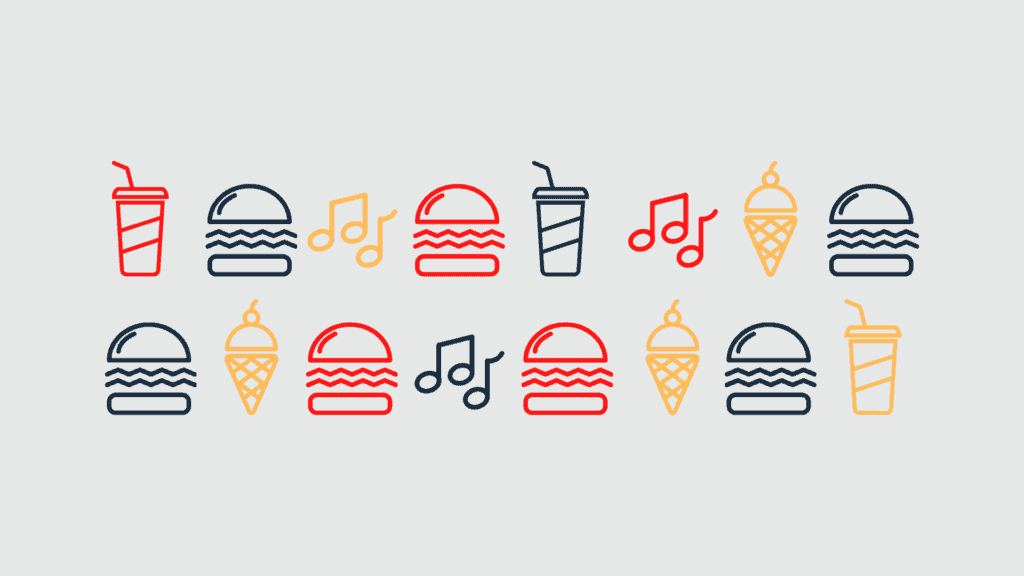Ever watched The Founder?
It’s a biographical drama about Ray Kroc, the man who turned McDonald’s into an empire.
One of the keys to his success was process management and workflow. In other words, “How fast can we get something out the door and into the customer’s hands.”
In this post, I’m going to share 3 things that you can take away (ha-ha) from how McDonald’s is run and apply them to your workflow.
Here they are in a nutshell:
- Do the prep work
- Set target times
- Continuously improve
Note: If you want to rapidly improve your workflow and beat writer’s block, then check out my guide here.
1 – Do the prep work
At McDonald’s, the work starts outside the kitchen.
Fries are half-cooked before they even arrive at the franchise. So are chicken nuggets.
McDonald’s uses a lot of pre-cooked/pre-processed foods, which allow them to assemble a meal extremely quickly.
They also use what’s called a Universal Holding Cabinet, which can hold food for up to 20 minutes, allowing them to “pre-cook” items in anticipation of orders (they might cook 20 big macs before 12PM and place them in the UHC so they can promptly serve lunchtime customers).
As a music producer, if you want to work effectively and increase your output, you need to do the prep work.
- Schedule sessions to work only on sound design. Build a library of presets and sounds that you can use in future projects.
- Create your own percussion loops ahead of time.
- Have a “writing” session where you just write a bunch of melodies and chord progressions, which will enable you to start new projects with ease.
Doing this prep work makes the songwriting/production process much easier. You don’t have to do anything from scratch. You assemble what you’ve already made.
2 – Target times
When working at McDonald’s, you’ll be assigned a job and have a target time for that particular job.
For instance – if you’re grilling patties, your target might be 45 seconds. You don’t want to go over that.
This is part of the reason why fast food is fast food. There’s an extremely fast and efficient system underlying the prep, cooking, and delivery of your food.
When producing, set target times for different production tasks. You might aim to write your melody and chord progression in 45 minutes. You might aim to have your arrangement done within 1.5 hours.
Whether you reach the target or not is irrelevant. It’s there as a tool to help you work fast and cultivate focus.
3 – Continuous Improvement
In 1975, US soldiers at military base Fort Huachuca in Sierra Vista were not permitted to get out of their cars while in uniform.
McDonald’s saw this and recognized them as lost customers, so they added the first ever drive-thru.
As a company, they’re always testing new things, improving existing processes, and refining the system.
As producers, we can (and should) do the same with our workflow. Ask yourself:
1) Where am I getting stuck? Where am I working slowly?
Maybe you struggle most with composition, so you use certain composition aids like Ableton’s scale and chord MIDI effects.
Or maybe you find arrangement difficult, so you implement a tactic like subtractive arrangement, whereby you create a full 8-bar loop, duplicate it to the desired length of your track, and then remove sounds in certain places to create a logical arrangement.
2) Is my workflow helping me create the music I want to make?
Your workflow should be conducive to the type of music you want to make.
For instance, if your goal is to make pop music, then you want to be optimizing for songwriting and arrangement. You don’t want to be distracted by sound design while writing a melody or chord progression. So remove sound design from your song project workflow as much as you can.
3) What’s one thing I could test/implement in my workflow that, if successful, would bring great results?
One thing that has saved me hours of time working in Ableton Live is setting default presets for all the common native audio effects.
Is there something like this that you could implement that would save you a lot of time? Maybe it’s setting defaults, or maybe it’s experimenting with separate sound design/writing sessions. Try things out for a couple of weeks and see what works.
Recommended: What South Park Can Teach Us About Music Production
Action Steps: How to start improving your production workflow today
Lessons like these have no value if not applied in the real world.
As a reminder, here are the three lessons that you can use to improve your production workflow (I’ve turned them into actionable steps for you):
STEP #1: Schedule out a regular prep session (once every two weeks or so) to design sounds, loops, write melodies, etc. Place everything in a personal folder that you can easily access.
STEP #2: Set target times for your next project (an overall track target time, composition target, arrangement target, and mixing target). Use a timer on your phone or laptop and try your best to stick to them.
STEP #3: Pick ONE thing you could improve in your current workflow. Maybe it’s learning a few keyboard shortcuts, or setting new defaults for your three most-used plugins. Implement it today.
You can complete all these steps in 30 minutes max, just make sure you commit when it comes to actually doing the work. Write all these things down and schedule out your prep sessions.
And if you want to really level up your workflow, then check out my book: The Producer’s Guide to Workflow & Creativity.

